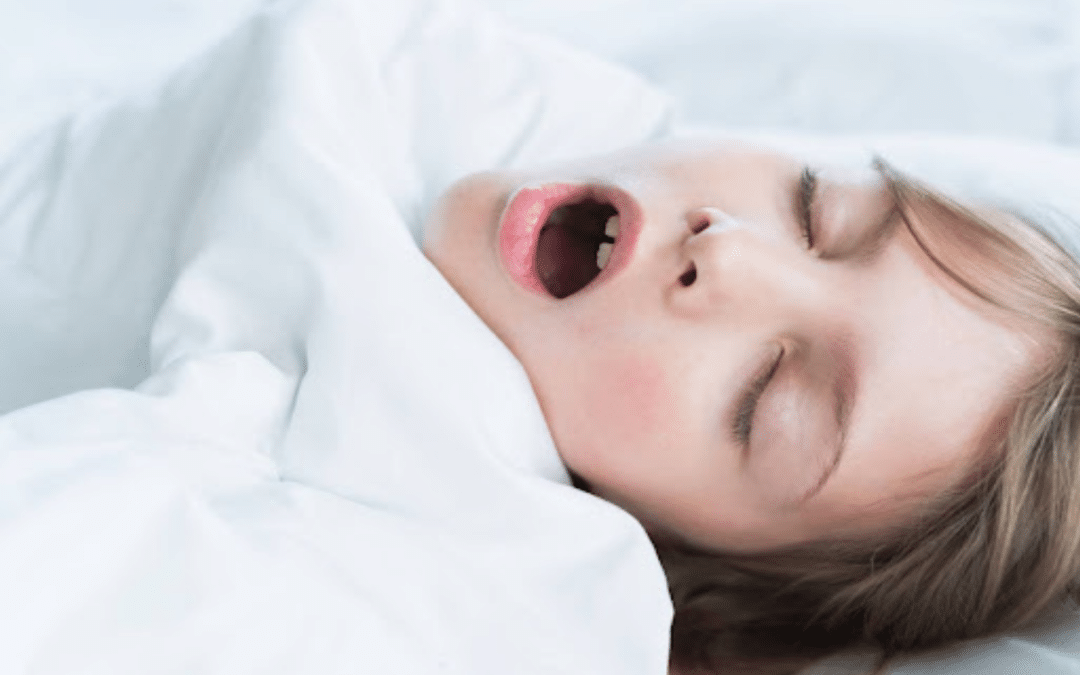Breathing through your mouth instead of your nose might seem harmless, but it can significantly impact your health. Mouth breathing can lead to immediate discomforts, such as a dry mouth and throat, and increase the risk of oral infections. Over time, this seemingly minor habit can contribute to severe dental problems, sleep disturbances, and even changes in facial structure, particularly in children.
Understanding the full range of effects caused by mouth breathing is crucial for maintaining overall health and well-being. Addressing this issue early can prevent long-term damage and improve quality of life. In this blog, we’ll explore the immediate and long-term consequences of mouth breathing, delve into its impact on dental health, sleep, and general health, and introduce myo therapy as an effective solution.
Additionally, we’ll provide preventive measures and tips to encourage nasal breathing, helping you achieve better health outcomes.
Immediate Effects of Mouth Breathing
Mouth breathing can cause immediate discomfort and health issues. Breathing through your mouth instead of your nose often results in a dry mouth and throat. This dryness not only feels uncomfortable but also disrupts the balance of natural bacteria in your mouth. This imbalance can lead to various oral health problems.
- Dry mouth and throat: When you breathe through your mouth, saliva production decreases, causing dryness. Saliva helps wash away food particles and neutralize acids, protecting teeth and gums.
- Increased risk of oral infections: A dry mouth provides an ideal environment for harmful bacteria to thrive. This can lead to conditions like bad breath, gum disease, and tooth decay. Additionally, mouth breathing can increase the risk of infections such as oral thrush, which is caused by an overgrowth of yeast in the mouth.
Impact on Dental Health
Mouth breathing significantly impacts dental health, leading to several issues:
- Tooth decay and gum disease: Mouth breathing reduces saliva flow, which normally helps cleanse the mouth of food particles and bacteria. This lack of saliva can result in a buildup of plaque and bacteria, increasing the risk of tooth decay and gum disease.
- Bad breath (halitosis): The dry environment created by mouth breathing promotes bacterial growth, which can cause bad breath. Without sufficient saliva to wash away bacteria and food particles, odorous compounds accumulate in the mouth, leading to halitosis.
Effects on Sleep and Respiratory Health
Mouth breathing can have detrimental effects on both sleep quality and respiratory health:
- Sleep apnea and snoring: Mouth breathing during sleep can contribute to obstructive sleep apnea, a condition characterized by pauses in breathing or shallow breaths. It can also exacerbate snoring, leading to disruptions in sleep patterns.
- Impact on lung function and oxygen levels: Breathing through the mouth bypasses the natural filtration and humidification provided by the nasal passages, potentially causing irritation to the lungs. Additionally, mouth breathing may result in decreased oxygen levels in the bloodstream, affecting overall respiratory function and health.
Consequences for Facial and Dental Development in Children
Mouth breathing can significantly impact the facial and dental development of children, leading to:
- Changes in jaw and facial structure: Continuous mouth breathing can alter the growth patterns of the jaw and facial bones, potentially resulting in a long, narrow face and an open-mouth posture.
- Dental misalignment and bite issues: The habit of mouth breathing can lead to malocclusion, where the teeth do not align properly when the jaws are closed. This can cause bite problems such as overbite, underbite, or crossbite, affecting both dental aesthetics and function. Early intervention is crucial to address these developmental issues and prevent long-term complications.
General Health Implications
Mouth breathing can have broader implications for general health, including:
- Compromised immune system: Chronic mouth breathing may disrupt the balance of gases in the bloodstream, potentially weakening the immune system’s response to pathogens.
- Increased risk of respiratory infections: Inhalation of airborne particles through the mouth bypasses the natural filtration system of the nasal passages, making individuals more susceptible to respiratory infections such as colds, flu, and sinusitis. Ensuring proper nasal breathing can help maintain optimal respiratory health and reduce the risk of such infections.
Myo Therapy: An Effective Solution
Myo therapy, short for myofunctional therapy, is a specialized treatment approach designed to address issues related to the muscles and functions of the mouth and face. It focuses on exercises and techniques aimed at improving muscle strength, coordination, and function to correct oral habits like mouth breathing. Here are some key benefits of myo therapy:
- Improved muscle function: Myo therapy exercises target the muscles involved in breathing, chewing, swallowing, and speaking, promoting proper coordination and function.
- Correction of mouth breathing: Myo therapy helps individuals transition from mouth breathing to nasal breathing by strengthening the muscles responsible for maintaining an open airway through the nose.
- Enhanced facial development: By promoting correct oral posture and muscle function, myo therapy can contribute to proper facial and dental development, particularly in children.
- Reduced risk of dental issues: Myo therapy may help prevent or alleviate dental problems associated with mouth breathing, such as misaligned teeth, narrow dental arches, and malocclusion.
- Improved overall health: Nasal breathing is essential for optimal oxygenation and overall health. Myo therapy supports the transition to nasal breathing, which can enhance sleep quality, respiratory function, and immune response.
Mouth breathing can have profound effects on various aspects of health, including dental, respiratory, and facial development. However, solutions like myo therapy offer effective ways to address this issue and restore proper breathing habits. By understanding the consequences of mouth breathing and utilizing appropriate interventions, individuals can improve their overall well-being and quality of life.

